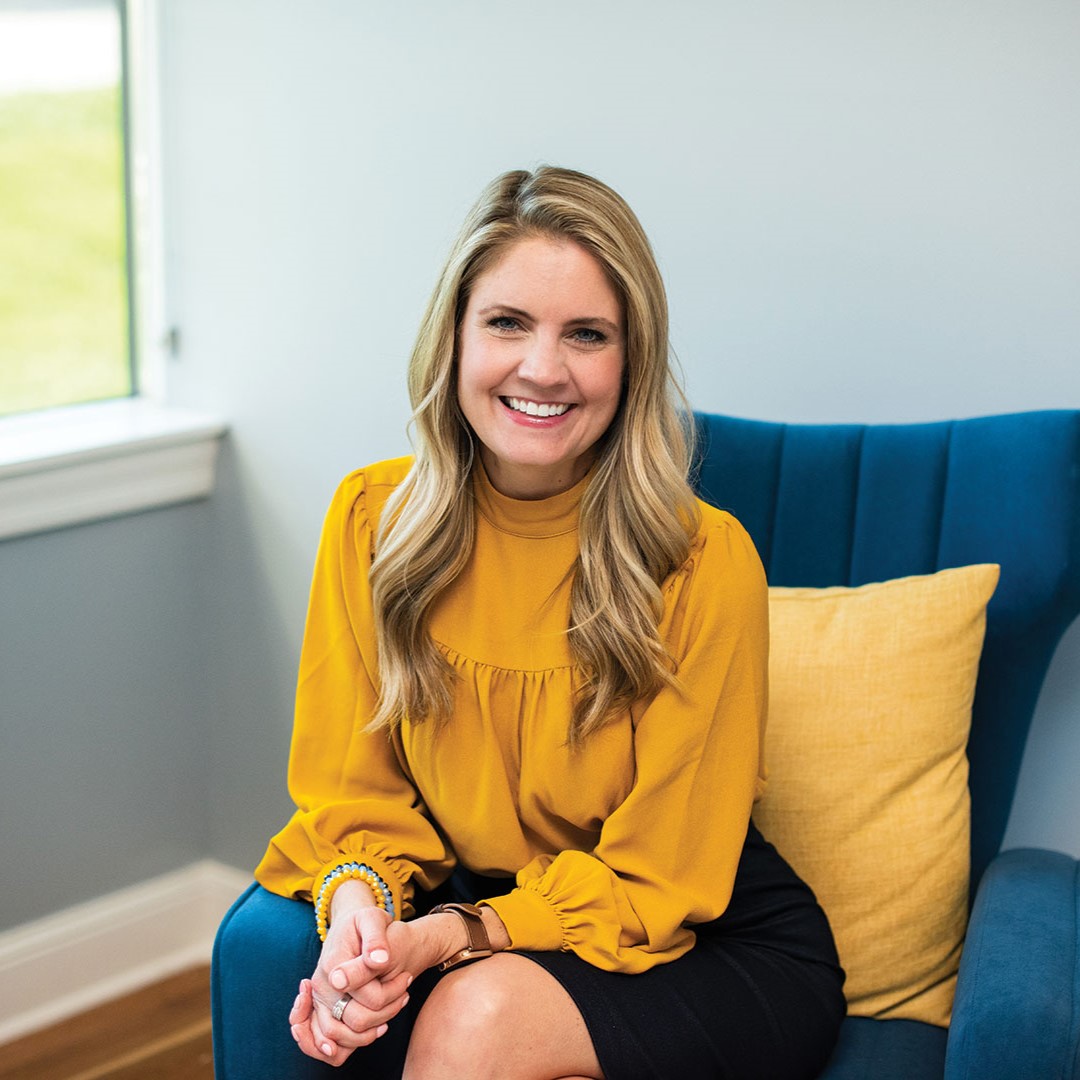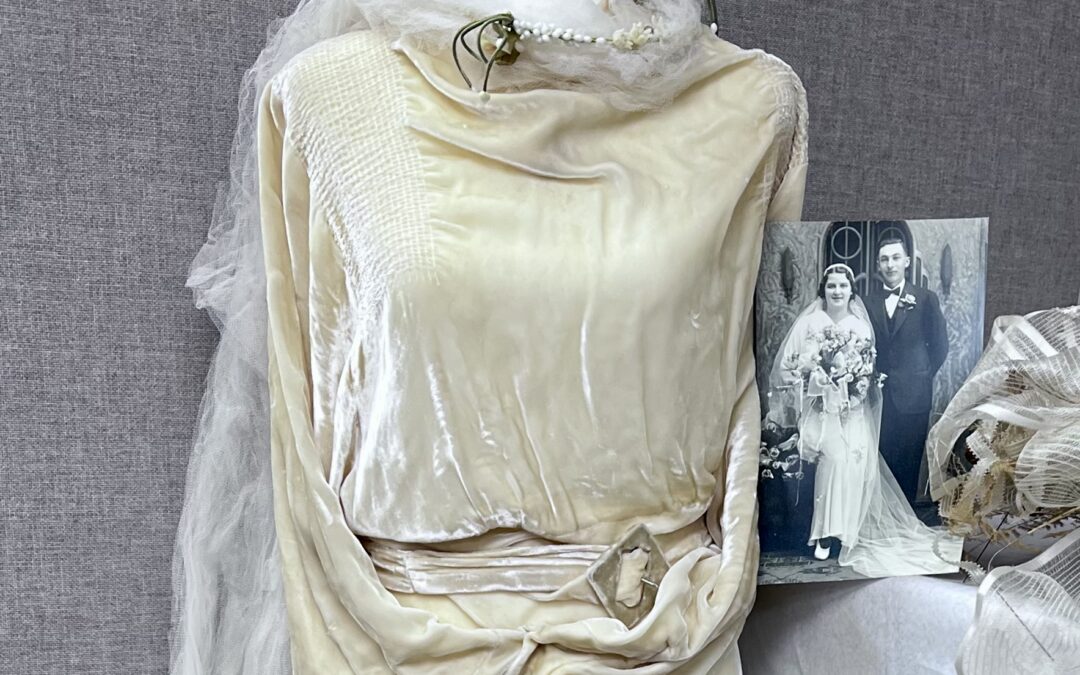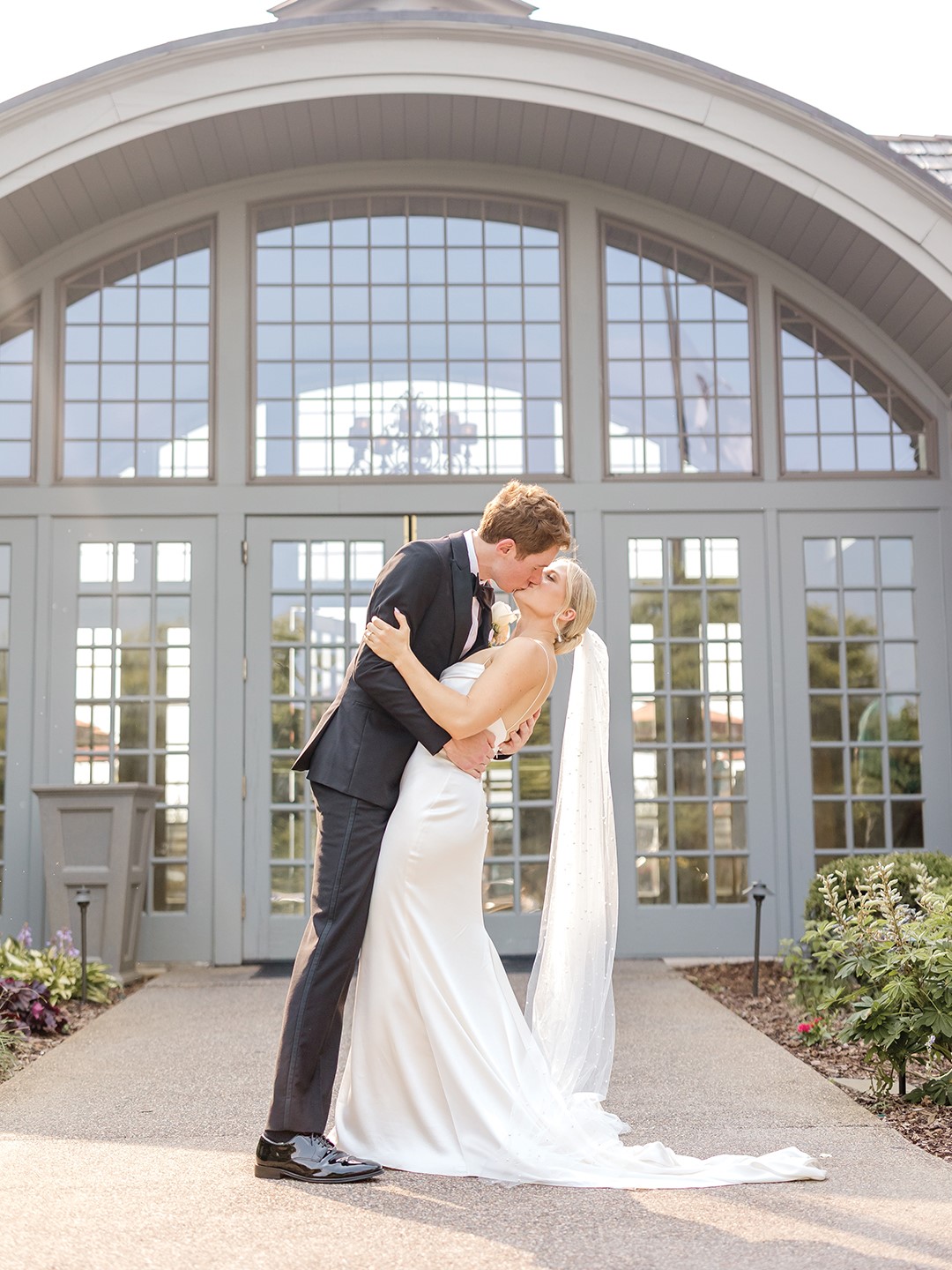
Andrea Hutchinson, co-owner of CARE Counseling. Photo: Angela Divine Photography
This Mental Health Awareness Month, a new Maple Grove clinic offers counseling and support.
By the time psychologist Andrea Hutchinson finished her doctoral program, she’d completed rotations at a variety of practice sites: large health systems, nonprofits and private practices. The differences were vast. Large health systems are typically designed for physical, not mental, health. Nonprofit counseling organizations are passionate about patients but can’t usually offer competitive salaries or benefits to providers. And private practice requires an immense amount of overhead and administrative work to keep things afloat. “What if we took the best of each of those worlds and put them together to create a professional practice?” Hutchinson thought.
CARE Counseling was born. The network of counseling clinics, which Hutchinson co-owns with her husband, John, opened its Maple Grove location—its ninth—last October. “We’re so excited to be in Maple Grove,” Hutchinson says. “There’s a great need here for mental health care. We’re at the intersection of lots of highways and accessible to lots of people.”
At the Maple Grove practice, a team of licensed therapists provides relational and emotional counseling to adults and children. “We do exclusively outpatient mental health services,” which looks like what you might picture as traditional hour-long talk therapy sessions,” says Hutchinson.
She emphasizes that mental health care should be available and judgment-free for anyone who needs it. “We see a lot of people who, at work or school, appear to be fine,” she says. “Maybe they’re trying to cope on their own, but under the surface, they’re struggling with anxiety, depression or grief and loss.” There’s no minimum bar a person must meet to seek counseling, she explains. “Even if a symptom might be ‘normal’ or ‘common,’ it doesn’t mean therapy doesn’t help,” she says.
CARE Counseling’s email and phone lines are staffed by professional administrative staff, so new patients can hop online or call and speak to a real person to get the scheduling process started. New patients can choose between an in-person visit or telehealth visit to get to know their provider. “We can usually get people in the same week, often within 48 hours,” says Hutchinson, a stunningly quick care timeline in a time when wait-lists at traditional mental health centers can be months long.
To help push back against lingering stereotypes or stigmas, each provider spends time with new patients, discussing the existing assumptions or judgments they might bring to their visits, so they can help shift how they perceive the experience.
And one of the reasons CARE has been so successful at building its team of clinicians is the focus Hutchinson places on caring for the clinicians themselves. Under her model, providers are paid well, have great benefits and adaptable schedules and are supported every step of the way—helping them avoid burnout and turnover.
“We have 260-plus clinicians, and it’s a great model,” she says. “It speaks to a need in the field.” She uses the oxygen-mask analogy: On an airplane in crisis, passengers are instructed to get their own oxygen masks on before they help others. The same is true for mental health providers, Hutchinson says. “If we’re hiring the very best providers in the area, we’re selective, and we provide the best training, they’ll stay and provide the best care to the community,” she says.
In addition to one-on-one counseling sessions, CARE providers speak at substance use conferences, give school-based talks for parents and teachers and provide social-emotional education for teachers with Minndependent, a network for independent and private schools in Minnesota.
If you or a loved one are experiencing a mental health crisis and need immediate support, dial 988.
CARE Counseling
11671 Fountains Drive; 612.223.8898
Facebook: CARE Counseling
Instagram: @care.counseling






















